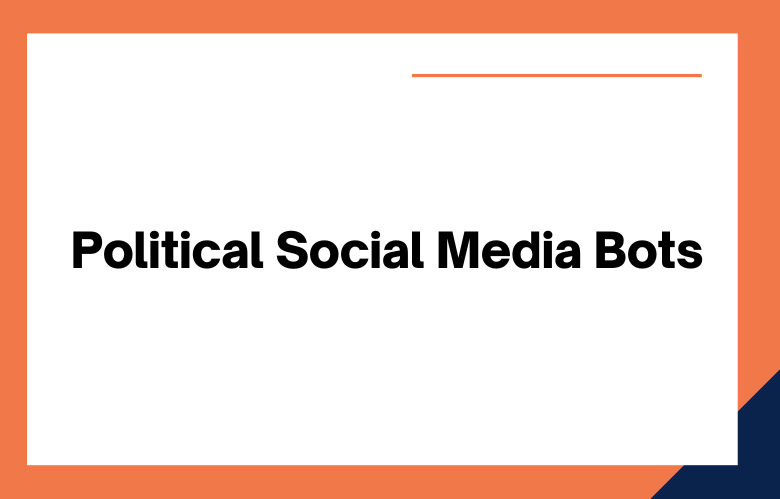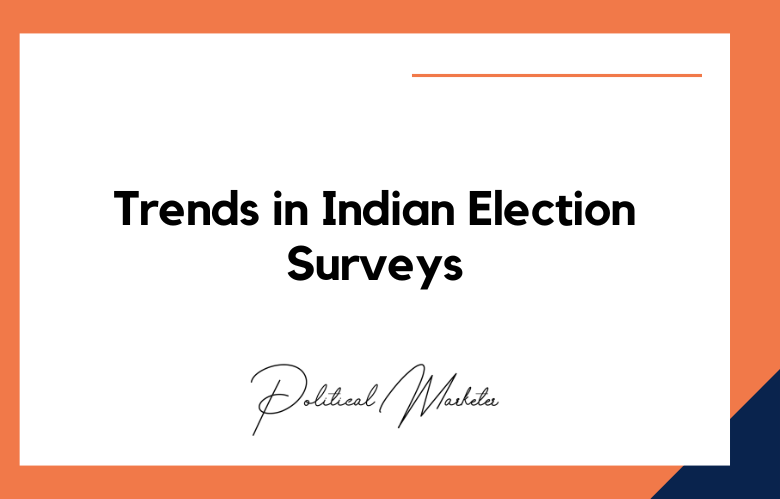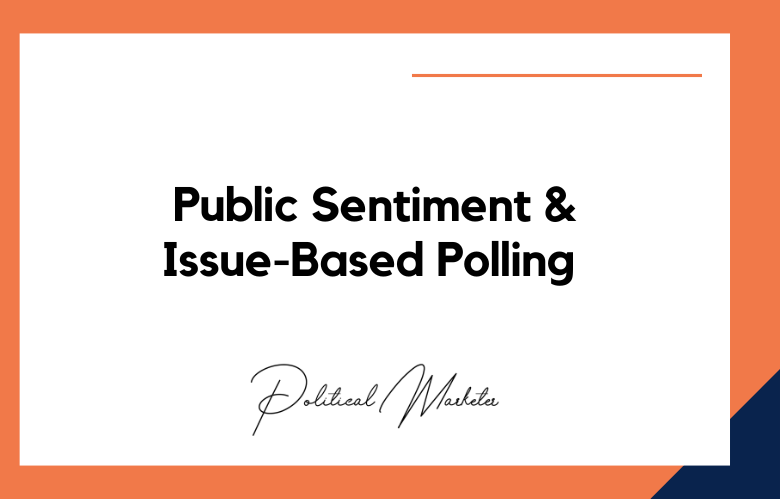In the era of social media, bots have become a powerful political tool. But what are they, exactly? This blog post will explain everything you need about political and social media bots. We’ll cover their origins, use in political campaigns, and advantages and disadvantages.
What is a Bot?
It is a software program that automates specific tasks. Social media bots are designed to automate tasks on social media platforms, such as posting content, liking and commenting on posts, following and unfollowing users, etc.
Political bots are a subset of social media bots that specifically engage in political discourse on social media platforms. They can be used for different purposes, including promoting or opposing political candidates or policies, mobilizing support for or opposing political movements, engaging in electioneering or voter suppression, and disseminating propaganda.
The Influence of Bots on Politics
Political bots have become increasingly prevalent and influential in politics in the past few years. A 2016 study found that nearly one in five tweets about the U.S. presidential election was posted by a bot.
A 2018 study found that Twitter bots were responsible for spreading 30% of all false rumors about French presidential candidate Emmanuel Macron during the 2017 election.
Bots can have a significant impact on public opinion and political discourse. They can also influence public opinion by amplifying specific messages or drowning out others. For example, political bots were used extensively during the 2016 U.S. presidential election to spread misinformation and promote propaganda.
Bots can also mobilize support for or opposition to political candidates or movements. For example, bots were used extensively by both the Leave campaign and the Remain campaign during the 2016 Brexit referendum in the United Kingdom.
Bots were also used by both supporters and opponents of Donald Trump during the 2016 U.S. presidential election.
What are Social Media Bots?
It is a software program that automates specific tasks on social media platforms. For example, a bot might be programmed to automatically like Instagram posts with a specific hashtag or retweet tweets from a particular account. Bots can be used for various purposes, both good and bad.
Bots have been used in political campaigns for years now. In the United States, political campaigns use bots to communicate with potential voters on Twitter and Facebook. For example, a campaign might use a bot to automatically tweet links to positive news stories about the candidate or send out mass Facebook messages inviting people to attend a rally.
There are some advantages and disadvantages to using bots in political campaigns. Additionally, bots can save campaigns time and money by automating tasks that would otherwise be done manually.
They can also reach large numbers of people very quickly. On the downside, bots can give campaigns an unfair advantage by amplifying their message more effectively than their opponents. Additionally, bots can spread false information and disinformation, which has become increasingly common in recent years.
What are Political Social Media Bots?
Political and social media bots are computer programs that automatically generate and post content on social media platforms like Twitter and Facebook. Often, they’re used to spread misinformation or influence public opinion.
For example, during the 2016 U.S. Presidential Election, it was revealed that Russian-linked Twitter bots were responsible for spreading fake news stories to sway the election in Donald Trump’s favor.
A social media bot is software that automates specific tasks on social media platforms. When it comes to political and social media bots, these tasks typically involve amplifying a message or spreading disinformation. For example, a bot may be programmed to automatically retweet a politician’s posts or share articles from a specific news outlet.
Why are the Bots being used more and more in Politics?
There are a few reasons for this:
- Social media bots are relatively easy to create and use.
- They can be very effective in amplifying a message or narrative.
- They can be used anonymously, allowing politicians and other interested parties to spread information without being held accountable.
Are They Legal?
This is a tricky question. There is currently no federal law explicitly regulating social media bots. However, the Federal Election Commission has proposed rules prohibiting bots’ use for campaign purposes. These proposed rules have not been finalized yet, so it remains to be seen whether they will be enacted into law.
The Use of Political Social Media Bots
Actors around the world have used political and social media bots for a variety of purposes. For example, in the United States, bots have been used to spread disinformation about political candidates and mobilize voters.
There is growing evidence that political and social media bots are having a significant impact on democracy. A recent study found that bots were responsible for sharing 34% of all links related to the U.S. presidential election on Twitter. Another study found that bots were responsible for spreading false information about Muslim immigrants in the U.K. during the Brexit referendum.
Bots can be used for good and ill; they’re not inherently evil. However, those with nefarious intent can be dangerous in the hands of those with nefarious intent.
Here are some common characteristics of political and social media bots:
- They often have suspiciously short bios with few or no personal details
- They tweet or post frequently, sometimes dozens or even hundreds of times per day
- They often share random links with little or no context
- They have few or no followers
- They follow a large number of people
- Their tweets or posts are often automated or contain typos/grammatical errors
- Their tweets or posts tend to lack originality or depth
Advantages of Political Social Media Bots
- Political and social media bots can help politicians connect with their constituents more personally.
- Bots can help politicians gather data about their constituents
- Bots can help politicians spread their message to a larger audience
- Bots can help politicians respond to criticism more quickly and effectively
- Political and social media bots can help campaigns target specific demographics with tailored messages
- Bots can help automate tasks like liking or following pages, which can be time-consuming
- Bots can help increase the reach of a campaign’s message by increasing the number of followers
- Bots can help create a more engaged community around a political campaign
- Bot activity can be monitored and tracked for insights into how people are responding to the campaign
- Increased voter turnout
- More efficient campaigning
- Easier to target specific demographics
- Cheaper than traditional campaigning
- It can be used to spread disinformation
- Can help sway public opinion
Disadvantages of Political Social Media Bots
- Bots can distort public opinion by skewing the number of likes or shares a post receives
- Bots can be used to spread fake news or propaganda
- Bots can be used to harass people online
- Bots can be used to influence elections
- Bots are often complex to detect
- Bots can be used to spread misinformation
- Bots can be used to influence public opinion
- Bots can be used to suppress dissenting voices
- Bots are often difficult to detect
- Bots can be used to distribute false information
- Bots can be used to influence public opinion
- Bots can be used to suppress dissenting opinions
- Bots are often complex to detect
- Bots can hurt democracy
- Bots can be used to spread misinformation
- Bots can be used to influence public opinion
- Bots can be used to suppress dissenting voices
- Bots are often complex to detect
- Bots can hurt democracy
Detecting and Combating Political Social Media Bots in 2024
Detecting and combating political social media bots has become a critical priority in 2024, as these automated accounts continue to proliferate and exert influence over public discourse, electoral processes, and democratic governance. Recognizing the threat posed by bots to the integrity of online conversations and the fairness of elections, governments, tech companies, and civil society organizations are employing a range of strategies and technologies to identify, mitigate, and counteract their impact. This article outlines some key approaches to detecting and combating political social media bots in 2024.
Advanced AI and Machine Learning Algorithms: Governments and tech companies are leveraging advanced artificial intelligence (AI) and machine learning algorithms to detect patterns and anomalies indicative of bot activity on social media platforms. These algorithms analyze factors such as posting frequency, content similarity, engagement patterns, and network behavior to identify suspicious accounts and distinguish between genuine users and bots.
Bot Detection Tools and Platforms: Several companies and organizations have developed specialized tools and platforms for detecting and monitoring political social media bots. These tools employ a variety of techniques, including network analysis, sentiment analysis, and behavioral profiling, to identify bot accounts and track their activities in real-time. By providing users with insights into bot activity, these platforms empower individuals and organizations to take action to mitigate the impact of bots on online discourse.
Transparency and Accountability Measures: Governments and tech companies are implementing transparency and accountability measures to increase the visibility of political advertising and communications on social media platforms. These measures include requirements for political advertisers to disclose their identities, funding sources, and sponsorship of ads, as well as efforts to enhance transparency around the use of bots and automated accounts for political purposes.
Community Reporting and Crowdsourced Monitoring: Many social media platforms rely on community reporting and crowdsourced monitoring to identify and flag suspicious accounts and content. By empowering users to report suspected bots and coordinated manipulation efforts, social media platforms can leverage the collective wisdom of their user base to identify and remove malicious actors from their platforms.
Collaboration and Information Sharing: Collaboration and information sharing among governments, tech companies, and civil society organizations are essential for effectively combating political social media bots. By sharing data, insights, and best practices, stakeholders can develop a coordinated and proactive approach to detecting and mitigating bot activity across different platforms and jurisdictions.
The Impact of Political Social Media Bots on Public Opinion: Analysis
The impact of political social media bots on public opinion is a complex and multifaceted phenomenon that has profound implications for democratic discourse, electoral processes, and the integrity of public discourse. While the exact extent and nature of their influence remain subject to debate and ongoing research, there is growing evidence to suggest that political, and social media bots can shape public opinion in significant ways. This analysis examines the impact of political social media bots on public opinion, exploring their potential effects on perceptions, attitudes, and behaviors among social media users.
Amplification of Messages: One of the primary ways in which political social media bots impact public opinion is by amplifying messages and content on social media platforms. Bots can artificially inflate the visibility and reach of political content by liking, sharing, and retweeting posts, making them appear more popular or influential than they actually are. This amplification effect can shape perceptions of what issues are important, which candidates are popular, and what positions are widely supported among social media users.
Manipulation of Discourse: Political social media bots can also manipulate public discourse by spreading misinformation, disinformation, and propaganda. Bots can disseminate false or misleading information about candidates, parties, or political issues, sow confusion and doubt among social media users, and distort the public debate. This manipulation of discourse can undermine trust in democratic institutions, erode confidence in the electoral process, and contribute to the polarization of society.
Creation of Echo Chambers: Another impact of political social media bots on public opinion is the creation of echo chambers and filter bubbles. Bots can amplify partisan content and reinforce existing beliefs and ideologies among social media users, leading to the formation of insular communities where alternative viewpoints are marginalized or excluded. This echo chamber effect can further polarize society, exacerbate social divisions, and hinder constructive dialogue and compromise.
Undermining Trust and Credibility: Political social media bots can also undermine trust and credibility in online information sources and social media platforms. By spreading false or misleading information, manipulating discourse, and amplifying partisan content, bots erode the reliability of information sources and contribute to a climate of distrust and skepticism among social media users. This erosion of trust can have far-reaching consequences for public opinion, electoral processes, and democratic governance.
Exploring the Ethics of Political Social Media Bots in 2024
Exploring the ethics of political social media bots in 2024 raises profound questions about the role of automation, manipulation, and accountability in digital political communication. As these automated accounts continue to proliferate and exert influence over public discourse and electoral processes, concerns about their ethical implications have come to the forefront of debates surrounding democracy, technology, and governance. This exploration delves into the ethical considerations surrounding political social media bots, examining issues such as transparency, manipulation, fairness, and democratic legitimacy.
Transparency: One of the central ethical concerns surrounding political social media bots is transparency. Users may be unaware that they are interacting with automated accounts rather than genuine individuals, leading to a lack of transparency and accountability in online political discourse. Without clear disclosure of bot activity, users may be misled or manipulated by artificially inflated messages, undermining trust in online platforms and democratic processes.
Manipulation: Political social media bots raise ethical questions about the manipulation of public opinion and discourse. Bots can amplify partisan content, spread misinformation, and distort online conversation, shaping perceptions, attitudes, and behaviors among social media users. This manipulation of discourse can undermine the integrity of public debate, erode trust in democratic institutions, and contribute to the polarization of society.
Fairness: The use of political social media bots raises concerns about fairness and equality in electoral processes. Bots can artificially inflate the visibility and reach of political content, giving certain candidates or parties an unfair advantage in online discourse. This distortion of the public debate can skew perceptions of electoral support and influence voter behavior, potentially undermining the fairness and legitimacy of elections.
Democratic Legitimacy: Political social media bots also raise broader questions about democratic legitimacy and governance. By manipulating public opinion and discourse, bots can influence electoral outcomes and shape policy decisions, potentially undermining the democratic will of the people. This erosion of democratic legitimacy threatens the foundations of representative democracy and the principle of government by the people, for the people.
Accountability: Finally, the use of political, and social media bots raises questions about accountability and responsibility. Who should be held accountable for the actions of bots, and what mechanisms are in place to ensure accountability in digital political communication? Without clear standards and regulations governing the use of bots in political campaigns, accountability gaps may arise, allowing malicious actors to exploit online platforms for their own ends.
Conclusion
Political bots are becoming an increasingly prevalent and influential force in politics. While they can significantly impact public opinion and political discourse, it is essential to remember that not all bots are created equal; some bot-generated content is more reliable than others.
Social media bots are a controversial political tool. Some argue they give campaigns an unfair advantage, while others claim they’re a time-saving measure.
However, there’s no denying that bots have become integral to modern political campaigning. We must know their presence and influence as we enter the 2024 election season.
Call: +91 9848321284
Email: [email protected]











